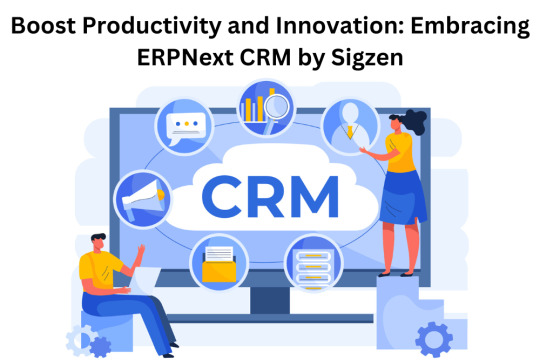#sales management
Text
Best Sales Training in India
The sales training academy is the door to successful and amazing performance in sales! Play beyond sales with the help of India’s sales experts.

#sales training#sales professional#b2b sales#social skills#negotiations#customer relationship management#sales management
3 notes
·
View notes
Text
#sales#sales training#sales manager#salestips#b2b sales#leadership#sales techniques#sales management
3 notes
·
View notes
Text
AI Sales Enablement: Enhancing the Customer Experience
In today's rapidly evolving business landscape, artificial intelligence (AI) has emerged as a transformative force, revolutionizing various industries, including sales and marketing. AI sales enablement, in particular, has become a powerful tool for organizations to optimize their sales processes and enhance customer experiences. By leveraging AI technologies, businesses can gather valuable insights, personalize interactions, and streamline sales efforts. This blog post explores AI sales enablement from a customer perspective, highlighting the benefits it brings to customers and how it shapes the modern buying journey.

1. Personalized Interactions:
One of the significant advantages AI sales enablement offers from a customer perspective is the ability to provide personalized interactions throughout the buying journey. Traditional sales methods often rely on generic approaches, where customers receive similar pitches and offers regardless of their unique needs. However, AI-powered solutions can analyze vast amounts of customer data, enabling organizations to understand individual preferences, pain points, and buying patterns.
With AI, businesses can deliver highly tailored recommendations, product suggestions, and offers based on each customer's specific requirements. By leveraging machine learning algorithms, AI sales enablement tools can learn from previous interactions and continuously refine their recommendations. This personalized approach fosters a deeper connection between customers and businesses, leading to increased satisfaction and loyalty.
2. Enhanced Customer Insights
AI sales enablement solutions also empower organizations to gain comprehensive insights into their customers, enabling them to understand their preferences and behavior better. By analyzing vast amounts of customer data, AI algorithms can identify trends, patterns, and correlations that might go unnoticed
These insights enable businesses to segment their customer base effectively, identifying different customer personas and targeting them with customized marketing strategies. With AI-powered analytics, organizations can determine the best time to engage with customers, the most effective channels for communication, and the type of content that resonates most with their target audience. As a result, businesses can allocate their resources more efficiently, ensuring that their sales efforts are focused on the right customers with the highest potential for conversion.
3. Streamlined Buying Journey
The modern customer expects a seamless and convenient buying experience. AI sales enablement tools can significantly contribute to streamlining the buying journey, making it easier and more efficient for customers to make informed purchasing decisions. By implementing AI chatbots, businesses can provide round-the-clock assistance, answering customer queries and guiding them through the sales process.
AI-powered chatbots can handle routine inquiries, provide product recommendations, and even assist with complex decision-making. These virtual assistants simulate human-like interactions, creating a more engaging and personalized experience for customers. Moreover, AI algorithms can analyze customer behavior in real-time, enabling organizations to proactively address potential issues, anticipate customer needs, and provide timely support.
4. Improved Customer Satisfaction and Retention
Ultimately, AI sales enablement solutions contribute to improved customer satisfaction and increased retention rates. By personalizing interactions, providing valuable insights, and streamlining the buying journey, businesses can cater to customer needs more effectively. Satisfied customers are more likely to become loyal advocates, promoting the brand through positive word-of-mouth and repeat purchases.
AI-powered solutions also enable businesses to anticipate and address customer pain points proactively. By leveraging sentiment analysis and customer feedback, organizations can identify areas of improvement and fine-tune their sales strategies accordingly. This continuous feedback loop ensures that customers feel valued, leading to higher levels of satisfaction and loyalty.
AI sales enablement has revolutionized the way businesses interact with customers, focusing on personalized experiences, insightful analytics, and streamlined processes. From the customer perspective, AI-driven sales enablement tools offer personalized interactions, enhanced customer insights, a streamlined buying journey, and improved satisfaction and retention. By leveraging the power of AI, organizations can create meaningful connections with their customers, understand their needs on a deeper level, and deliver a seamless buying experience that exceeds expectations.
As AI technologies continue to advance, the future of sales enablement holds even greater potential for customer-centricity. Voice-activated AI assistants, for instance, are becoming more prevalent, allowing customers to interact with brands through natural language conversations. This technology enables customers to ask questions, seek recommendations, and receive real-time assistance, creating a more interactive and personalized experience.
Furthermore, AI-powered predictive analytics can anticipate customer needs before they even arise. By analyzing historical data, market trends, and customer behavior, businesses can proactively suggest products or services that align with customers' preferences. This proactive approach not only saves time but also demonstrates a deep understanding of the customer, enhancing their overall satisfaction.
AI sales enablement also has the capacity to improve the post-sales experience. Chatbots and virtual assistants can provide ongoing support, offering product tutorials, troubleshooting assistance, and order tracking information. These AI-driven solutions ensure that customers receive prompt and accurate responses, reducing the need for lengthy wait times and frustration. As a result, customers feel valued and supported, fostering long-term loyalty.
However, it's important to note that while AI sales enablement brings numerous benefits, it should complement rather than replace human interactions. The human touch is still vital in building trust, empathy, and understanding. Therefore, organizations should strike a balance between AI-driven automation and human expertise to deliver exceptional customer experiences.
In conclusion, AI sales enablement has transformed the customer experience by personalizing interactions, providing deep insights, streamlining the buying journey, and improving satisfaction and retention rates. From tailored recommendations to proactive support, AI technologies empower businesses to meet and exceed customer expectations at every touchpoint. By embracing AI sales enablement from a customer perspective, organizations can forge stronger connections, drive customer loyalty, and stay ahead in the competitive marketplace of the future.
2 notes
·
View notes
Photo

What is Omnichannel Commerce? 4 Benefits for Online Business
Omnichannel commerce offers customers a better experience across all platforms. It’s a multi-channel approach that combines customer experience across all channels to improve sales. However, one should not mistakenly think that omnichannel commerce is about providing customers with different ways of buying, it’s a broad concept that should be used both to have a good customer experience and conduct marketing campaigns to increase sales.
Some facts and statistics say more about omnichannel commerce than any article or publication.
– Due to the seamless communication experience, nearly 80% of customers prefer omnichannel strategies.
– As opposed to single-channel, omnichannel marketing provides an increase in purchase frequency by 250% and a growth in the AOV (average order value) by 13% per order.
– By 2023, the global omnichannel retail commerce market is projected to grow to $11.01 billion.
Top 4 benefits of omnichannel commerce for online business owners
Omnichannel commerce allows customers to shop from their convenient platform, which eliminates any barriers that may prevent the customer from confirming their final purchase. Here are 4 benefits of omnichannel commerce for online business owners.
Customer retention
One of the main tasks of any business marketing strategy is to extend and maintain the customer life expectancy (LTV). The cost of living for customers is to provide them with a good shopping experience and to meet their needs. Customers need to feel safe and to be able to find their favorite brand products or services on different platforms. Omnichannel commerce solves these problems! It’s a fantastic marketing strategy to offer customers to buy and find their favorite brand products on various channels, from offline stores to eCommerce sites.
Revenue growth
According to statistics, omnichannel marketing increases the frequency of purchases by 250%. It proves the growth of the business conversion rate through omnichannel commerce. The benefits of omnichannel marketing strategies are especially evident in online businesses. According to research, omnichannel customers spend 10% more than others. Therefore, from the point of view of revenue growth, you can use different marketing channels to formulate omnichannel marketing strategies.
Multi-channel sales management
Coordinating sales through various means facilitates communication with customers, which also helps businesses to have a clear position in the competitive field and increase their reputation. 77% of solid omnichannel companies store customer data across different channels, expanding the customer base. Thus, through omnichannel commerce, companies can improve their services in advance to have a good customer experience, collect a wide database, and expand sales.
Offline and online store combination
In this digital age, having an online presence is a prerequisite for businesses to survive in a competitive environment. Omnichannel commerce is the best way to understand the benefits and differences between offline stores and online shops. Through this strategy, companies can clearly understand the sources of profits received to improve the way forward.
Summary
Omnichannel commerce is a new opportunity for businesses to maintain their position in the competitive field. Therefore, companies need to be aware of its potential benefits, as it offers customers a seamless experience across all platforms, meeting their needs and wants. It’s not an easy process, but the results are more powerful in this case, so you should spare no effort to move to such an omnichannel marketing strategy.
2 notes
·
View notes
Text
Unlock Your Business Potential with ERPNext CRM by Sigzen
Welcome to ERPNext CRM, a carefully crafted solution tailored to meet the diverse needs of modern businesses. Unlike typical CRM tools, ERPNext CRM offers comprehensive features designed by experts in ERPNext, an open-source enterprise resource planning software. This ensures it fits seamlessly into your organization’s existing ERP infrastructure.With ERPNext CRM, you get access to advanced…

View On WordPress
#business growth#Business Software#Cloud CRM#CRM#Digital Transformation#ERPNext#Innovation#Mobile CRM#Productivity Tools#sales management
0 notes
Text
Groval Euler’s – Channel Sales Management

For most organisations, channel sales partners provide two kinds of support – emotional and financial. On the emotional side, a good partner is a solid support for the sales and marketing teams. Partners can build the groundwork for several salespeople, making their lives easy. Hence, the sales teams should dedicate significant time and energy to nurturing the relationship with the channel sales partner.
The relationship between the channel sales partner and the organisations is a two-way street. Things must work out as a win-win for both parties to ensure the partnership grows. Here are some aspects that have played a vital role for many organisations:- https://grovaleulers.com/groval-eulers-channel-sales-management/
#SALES AND BUSINESS COACH#sales training#sales Enablement#Sales Management#building negotiation skills
0 notes
Text

Managing a sales team requires many skills, strategies, and tools to ensure the team stays motivated, productive, and successful. But how do you manage a sales team effectively and efficiently, especially when your team works at clients’ locations? That’s where location tracking becomes mandatory.
Live location tracking is one of the best ways to manage your sales team remotely, as it allows you to monitor your sales team’s location and activity in real time.
0 notes
Text
CRM Software Trends: AI, Machine Learning, and Predictive Analytics
CRM (Customer Relationship Management) software trends have been heavily influenced by advancements in AI (Artificial Intelligence), machine learning, and predictive analytics. These technologies have revolutionized how businesses manage their customer interactions, enhance customer experiences, and drive sales. Here are some key trends in CRM software related to AI, machine learning, and predictive analytics:
AI-Powered Personalization: AI and machine learning algorithms enable CRM systems to analyze vast amounts of customer data and provide personalized experiences. This includes personalized product recommendations, tailored marketing messages, and customized service interactions based on individual preferences and behaviors.
Predictive Lead Scoring: By leveraging machine learning techniques, CRM software can predict the likelihood of a lead converting into a customer. Predictive lead scoring helps sales teams prioritize leads, focus their efforts on high-value prospects, and optimize their sales pipeline for better conversion rates.
Churn Prediction and Customer Retention: AI-driven analytics can analyze customer behavior patterns to predict churn, i.e., the likelihood of a customer leaving. CRM systems equipped with churn prediction capabilities allow businesses to proactively identify at-risk customers and implement retention strategies to prevent churn.
Sentiment Analysis: Natural Language Processing (NLP) and sentiment analysis algorithms enable CRM software to analyze customer feedback from various channels such as social media, emails, and support tickets. By understanding customer sentiment, businesses can identify areas for improvement, address customer concerns promptly, and enhance overall customer satisfaction.
Voice and Speech Analytics: With the growing popularity of voice-activated devices and services, CRM software vendors are integrating voice and speech analytics capabilities. AI-powered speech recognition technologies enable businesses to analyze customer interactions from phone calls, voicemails, and other audio sources, extracting valuable insights to improve customer service and sales processes.
Automated Customer Service: AI-driven chatbots and virtual assistants are becoming integral components of CRM software for automating customer service tasks. These chatbots can handle routine inquiries, provide instant support, and escalate complex issues to human agents when necessary, improving efficiency and reducing response times.
Data-driven Sales Forecasting: Predictive analytics algorithms analyze historical sales data, market trends, and other relevant factors to generate accurate sales forecasts. CRM systems equipped with data-driven forecasting capabilities help businesses make informed decisions, allocate resources effectively, and set realistic sales targets.
Real-time Analytics and Insights: Advanced CRM platforms offer real-time analytics dashboards that provide actionable insights into customer behavior, sales performance, and marketing effectiveness. By accessing up-to-date data and metrics, businesses can adapt their strategies quickly, seize opportunities, and address emerging challenges in a timely manner.
In conclusion, AI, machine learning, and predictive analytics are driving significant advancements in CRM software, enabling businesses to deliver more personalized experiences, improve sales effectiveness, and enhance customer satisfaction. As these technologies continue to evolve, we can expect further innovations and enhancements in CRM systems to meet the evolving needs of businesses in the digital age.
0 notes
Text
What is the role of sales performance management tools in business?
Sales performance management tools are designed to improve the overall efficiency of sales operations. Setting up realistic targets, monitoring performance metrics, managing sales, and providing accessibility to customer data are some of the main features of sales tracking software. All the brilliant features of SPM tools aim to align sales goals with objectives, monitor real-time performance, and optimize sales processes. They also facilitate sales pipeline management, which empowers sales executives to nurture lead management strategically for enhanced opportunities. By providing insights into individual and team performance, sales management tools create a way to close the bottlenecks in performance management and thereby drive revenue growth. In short, an effective SPM tool plays a critical role in maximizing sales effectiveness, motivating teams, and achieving business success.

#sales performance management tool#sales performance management software#sales management tool#sales tracking software#sales management
0 notes
Text
What is the best software for a real estate agent?

In the ever-evolving realm of real estate, finding the crème de la crème of software is akin to navigating a bustling market. The quest for the best software for real estate agents leads us into the intricate landscape of real estate sales management software. As we delve into the digital terrain tailored for agents, the conundrum of choices adds an element of perplexity. What truly defines the optimal software solution for a real estate agent navigating the complexities of the property market?
The Enigma of Real Estate Sales Management Software
Real estate sales management software, often a beacon in the labyrinth of property dealings, caters to the nuanced needs of agents. It's not just about managing sales; it's about orchestrating a symphony of tasks from lead tracking to deal closures. The market buzzes with diverse options, each boasting its own set of features and advantages.
Decoding the Keywords: Real Estate Sales Management Software, Estate Sale Management Software
Before we dive into the mystique of these software solutions, let's decrypt the keywords. Real estate sales management software and estate sale management software are the ciphered phrases unlocking the door to a realm where efficiency, organization, and client management converge.
Navigating the Spectrum: Options Galore
The perplexing array of options available can leave even the most seasoned real estate agent in awe. From software A promising streamlined lead management to software B flaunting automation prowess, the choices are like constellations in a vast digital galaxy.
The Cosmic Dance of Software Options
Wise Agent: An Odyssey in Streamlined Lead Management
Lion Desk: Automating the Cosmos of Sales Success
Zoho Corporation: Navigating the Galactic Sea of Analytics and Performance Tracking
Follow Up Boss: A Constellation of Integration Capabilities
HubSpot: A Stellar User-Friendly Interface
Cracking the Code: What Defines the Best?
The conundrum deepens as we try to decipher what truly defines the best software for a real estate agent. Is it the gravitational pull of streamlined lead management, the orbit of automation, the cosmic dance of analytics, the constellation of integration, or the stellar user experience?
Peer into the Cosmos: Real-world Applications
To unravel this cosmic puzzle, let's peer into the cosmos of real-world applications. Case studies become our stargazing telescope, revealing success stories where businesses align their trajectories with these software constellations, witnessing positive impacts on lead conversion and client satisfaction.
The Nebula of Challenges
However, every cosmic journey encounters nebulas of challenges. Data migrations, user adoption hurdles, and customization complexities create celestial roadblocks. Yet, like intrepid space explorers, real estate agents can find solutions to traverse these cosmic challenges.
Guiding Stars: Tips for Real Estate Agents
As real estate agents embark on this interstellar journey, a set of guiding stars in the form of tips illuminate the path. Considerations of scalability, customization, and customer support become the North Stars guiding agents through the cosmic ocean of software options.
Quantum Leap: The Role of CRM in Growth
The cosmic voyage into software options is not just about managing the present; it's about orchestrating a quantum leap into the future. The role of CRM in real estate business growth becomes the warp drive propelling agents into uncharted territories.
Beyond the Event Horizon: Future Trends
In this cosmic exploration, we go beyond the event horizon to explore future trends. Artificial intelligence-driven features, enhanced mobile capabilities, and personalized digital universes beckon, signaling a celestial shift in the real estate software cosmos.
Conclusion: Embarking on the Cosmic Odyssey
As we conclude our cosmic odyssey through the labyrinth of real estate software, the best choice remains subjective, like selecting stars in the night sky. Each software constellation has its unique allure, and the optimal choice depends on the trajectory of the individual agent's journey.
1 note
·
View note
Text
Benefits of Implementing NetSuite
Implementing NetSuite brings a multitude of benefits to businesses, streamlining operations and enhancing productivity. Let's explore the advantages of integrating this comprehensive cloud-based business management software.
Unified Platform: NetSuite offers a centralized platform for managing various business functions, including financials, inventory, CRM, and e-commerce.
Improved Efficiency: By automating processes and eliminating manual tasks, NetSuite boosts operational efficiency and reduces the risk of errors.
Real-time Insights: The platform provides real-time visibility into key business metrics, enabling informed decision-making and strategic planning.
Scalability: NetSuite scales with your business, accommodating growth and expansion without the need for extensive IT infrastructure upgrades.
Enhanced Customer Experience: With integrated CRM capabilities, businesses can deliver personalized and seamless customer experiences, driving loyalty and retention.
Implementing NetSuite empowers businesses with a unified platform, improved efficiency, real-time insights, scalability, and enhanced customer experiences, positioning them for sustained growth and success in today's competitive landscape.
To learn more about Netsuite, visit www.fusion5.com.au.

0 notes
Text
5 notes
·
View notes
Text
Optimizing Sales Processes with Salesforce Sales Cloud
In the dynamic realm of sales, where agility and efficiency are paramount, businesses are increasingly turning to sophisticated tools to streamline processes and drive growth. At the forefront of this technological evolution is Salesforce Sales Cloud, a robust solution designed to revolutionize the way organizations manage their sales processes. This article explores the myriad ways in which Salesforce Sales Cloud becomes a catalyst for optimizing sales processes and propelling businesses towards unprecedented success.
A Comprehensive View of Sales Operations
Centralized Customer Data Management
At the heart of Salesforce Sales Cloud lies its ability to consolidate and centralize customer data. This centralized approach offers a 360-degree view of customer interactions, transactions, and preferences. By providing a comprehensive snapshot of each customer, Sales Cloud equips sales teams with the insights needed to tailor their approach, anticipate needs, and foster meaningful relationships.
Lead and Opportunity Management
Salesforce Sales Cloud excels in lead and opportunity management, offering a structured framework for tracking and prioritizing potential deals. Through customizable dashboards and reports, sales teams gain real-time visibility into the sales pipeline, enabling them to make informed decisions and allocate resources strategically.
Streamlining Workflows for Efficiency
Automated Processes with Workflow Rules
Efficiency in sales processes is often synonymous with time saved. Salesforce Sales Cloud introduces workflow rules that allow businesses to automate routine tasks, reducing manual intervention and minimizing the risk of errors. Whether it's automating follow-up emails, assigning leads, or updating records, workflow rules enhance efficiency, allowing sales teams to focus on building relationships and closing deals.
Seamless Integration with Email
Recognizing the centrality of email communication in sales, Salesforce Sales Cloud seamlessly integrates with popular email platforms. This integration not only ensures that all email communications are logged within the system but also allows sales representatives to send emails directly from Salesforce. This streamlined communication process enhances productivity and ensures that every interaction is captured and analyzed.
Harnessing the Power of Artificial Intelligence
Einstein Analytics for Intelligent Insights
Salesforce Sales Cloud incorporates Einstein Analytics, an artificial intelligence (AI) tool that revolutionizes the sales landscape. Einstein Analytics leverages machine learning algorithms to analyze historical data, predict outcomes, and recommend next steps. This empowers sales teams with intelligent insights, enabling them to prioritize leads, personalize outreach, and ultimately increase conversion rates.
AI-Powered Forecasting
Forecasting is a critical aspect of sales strategy, and Salesforce Sales Cloud takes it to the next level with AI-powered forecasting. By analyzing past performance, current opportunities, and market trends, the system provides accurate and data-driven sales forecasts. This not only aids in resource planning but also enables organizations to set realistic revenue targets and track their progress with precision.
Enhancing Collaboration for Greater Success
Chatter for Real-Time Collaboration
Salesforce Sales Cloud fosters collaboration among team members through Chatter, an enterprise social networking platform. This real-time communication tool allows sales teams to share insights, updates, and relevant information instantly. By breaking down communication barriers, Chatter enhances collaboration, ensuring that the entire sales team is aligned and working towards common goals.
Integration with Other Salesforce Clouds
Sales is not a siloed function, and Salesforce recognizes the need for integration across various business operations. Sales Cloud seamlessly integrates with other Salesforce clouds, such as Service Cloud and Marketing Cloud, ensuring a unified approach across sales, customer service, and marketing. This integration promotes a holistic view of customer interactions and facilitates a cohesive strategy for business growth.
Conclusion: Elevating Sales Excellence with Salesforce Sales Cloud
In the fast-paced world of sales, where every lead and opportunity counts, Salesforce Sales Cloud emerges as a game-changer. From providing a comprehensive view of sales operations to streamlining workflows, harnessing AI, and promoting collaboration, Sales Cloud becomes the cornerstone of sales excellence.
If you're ready to elevate your sales processes, consider leveraging the expertise of Top Salesforce Consulting Firms. Their knowledge ensures a seamless integration of Salesforce Sales Cloud into your business strategies, unlocking its full potential and propelling your organization towards unparalleled success.
Don't settle for mediocrity in your sales processes—embrace the power of Salesforce Sales Cloud and optimize your path to sales excellence.
0 notes
Text
1 note
·
View note
Text
The 'accidental sales manager'
Of course the same can be applied to other managers, but I really want to explore from a sales manager perspective.
How many times have you seen this scenario, one in which one of the top performing salespeople get shoulder tapped and promoted to the role of sales manager.
The same things has traditionally happened in education, healthcare, where the best performers get promoted.
It’s more…

View On WordPress
#capability development#coaching#field sales coaching#people development#sales coaching#sales management#Trust
0 notes
Text
5 SALES MANAGEMENT DASHBOARDS FOR DATA-DRIVEN LEADERS

These days, every sales leader must monitor performance to identify sales challenges, issues, and opportunities. Data is essential in isolating the problem areas. However, it’s the appropriate data view that helps describe what has happened and what actions you need to take.
So, instead of relying on the default measurements provided by your CRM or adjusting to the data view configured by your IT expert, you must align it with your business priorities and focus areas.
Now, here are the five must-have Sales Management dashboards you should know more about and implement in your CRM based on your needs.
0 notes